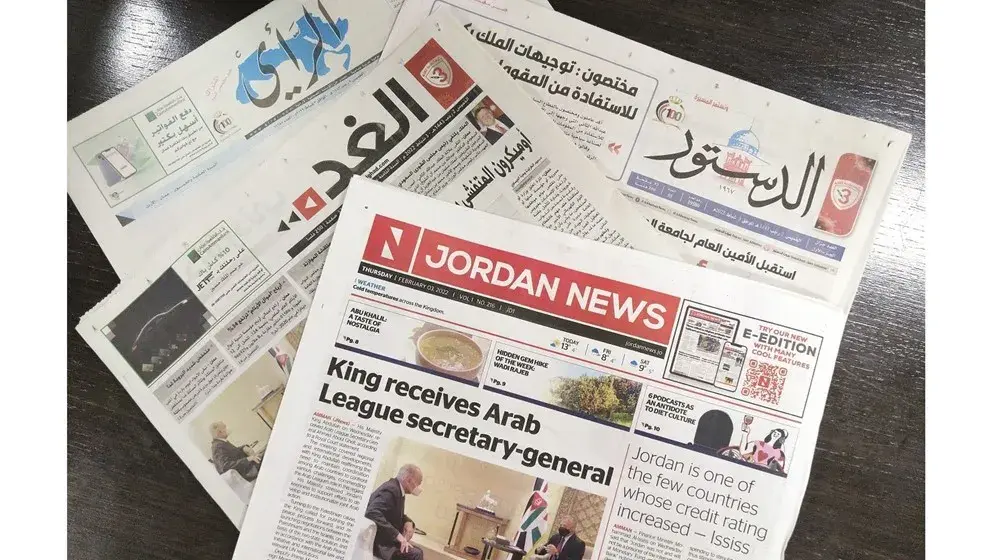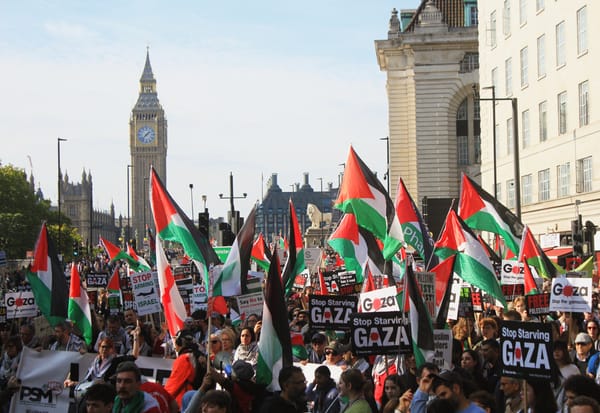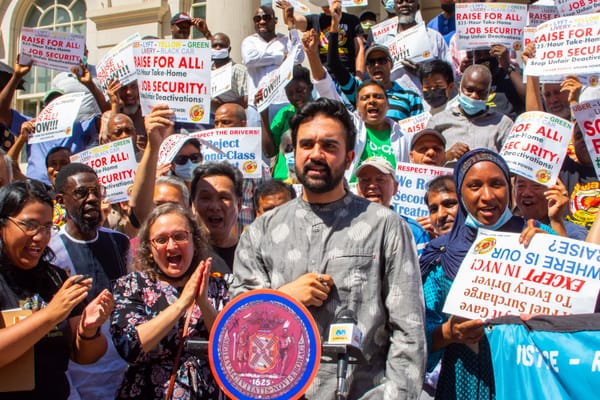Media Manipulation: The State of Jordanian Journalism

By Amelia Casey-Rerhaye, Senior Foreign Affairs Editor
On a chilly evening in December, I meet my friend for dinner in Amman. My head is spinning after spending all day trying to write an article in Arabic for a university assignment. She asks me about my day so I pose the question of media freedom in Jordan to her. She is straight to the point – there isn’t any, but everyone knows that.
My perception of freedom of speech in Jordan has spun full circle since coming to the country. Initially, my preconceptions made me apprehensive – an Arab country, reasonably conservative and ruled by a monarchy – most likely politics and the like are off the list for dinner table conversation. On arrival, though, I was pleasantly surprised – people do discuss the political situation, they do express concern about the governance of the country, and opinions are indeed vocalised – maybe even more so than in Britain. A political conversation in a language classroom would be frowned upon if not outright against the rules in the UK. After a while, though, the penny drops. This freedom is superficial, the state control of information runs deeply and thoroughly through press institutions and media outlets, not to mention the internet.
But it’s necessary, Nofe tells me. She’s grown up in Jordan her whole life, moving to Britain for her undergrad and now finishing off her law qualifications back in Amman. She tells me to look around at who and what surrounds Jordan. Famously, Jordan is a calm and stable nation located in the eye of a storm of geopolitical chaos. It survived the Arab Spring unscathed, has good relations with both Israel and Palestine and is among the stronger economies of the region. This would not have been possible without an alarmingly tight fist squeezing the population into placidity. Allegedly, it is the intense surveillance of the media which ensures that the foundations of the country don’t crumble against external pressures.
“Journalists have been tightly bound by gag orders and aggressive intimidation tactics from security services and government officials.”
I spoke to Dana Al-Zyadat from Jordan News over WhatsApp. Where Nofe seemed resigned to the fate of the repressed Jordanian media, Al-Zyadat’s comments were laced with suppressed rage. When I asked her opinion on the state of modern media in Jordan, she told me: “I believe that journalism is no longer a part of an authentic nation-building process as it should be.” Instead, in recent years, incidents of intimidation and pressure from governmental figures and organisations towards journalists have increased dramatically, coinciding with the introduction of laws targeting online media and their right to publish content related to contentious decisions of the government. The updated cybercrime law which came into action in 2023 criminalises the sharing of information online without the appropriate certificate of authorisation, forcing media sites to engage in a bureaucratic ordeal in order to continue with their work.
Even before this update of the law, journalists have been tightly bound by gag orders and aggressive intimidation tactics from security services and government officials. In 2021, AmmanNet, the only media outlet to cover the Pandora Papers, which exposed information regarding the King Abdullah’s foreign real estate holdings, was pressured over WhatsApp messages to remove all their coverage on the matter. Earlier than this, in 2019, journalists from the Ad-Dustour and Al-Ghad dailies reported having been forced to remove articles on conferences discussing the Israel-Palestine peace plan.
Unsurprisingly, self-censorship runs rampant throughout the Jordanian media. Al-Zyadat emphasised this in our conversation, telling me that at the Jordan Times “we practise self-censorship at its highest level.” She went further, insinuating the true extent to which editors are controlled by powerful figures in society: “[editors-in-chief] are influenced by their connections in the government and security apparatus.” The self-censorship she experiences and feels necessary to undertake imposes “restrictions” on her ability, and the ability of journalists and editors alike, to “truly be professionals”: “journalists today are suffering due to the type of persons assigned to occupy leadership positions in mainstream media institutions.”
Yet, is the situation of freedom in Jordan essentially different from that that we see in the UK or the US? The end goal seems to be the same. Both are situations of political powers controlling, influencing or contradicting journalists and journalistic integrity in national media. Maybe the difference is that in Jordan there is a very blatant iron first gripping the voices of journalists themselves, disallowing them to freely express their views on the political, social and economic state of the country. Rather, Britain suffers from powerful members of society using the mainstream media for personal gain, and the media producers and the greater powers of the country seem to be one and the same. Al-Zyadat pointed out something similar happening in Jordan, claiming that the “imposition of self-censorship” by leaders in the press sphere is often self-beneficial as they are “inherently biassed towards certain parties” and may not even be themselves journalistic professionals. This leads to the commercialisation of media institutions “aiming to profit at the expense of journalistic principles.”
Media reform in Jordan would require very real systematic change that goes much further than just the press. In order to give journalists the freedom to comment on what they want, in the way they want, the governmental structure would need overturning. As it stands, while trust in the media breaks down worldwide, Jordan is among the worst cases of media censorship. According to the World Press Freedom Index 2023, Jordan ranks 146th out of 180 countries. Reporters Without Borders Secretary-General Christophe Deloire said, “journalism is the best vaccine against misinformation.” The Jordanian public, however, has been left completely vulnerable as media institutions fail to provide them with reliable sources of information, and the government actively blocks their right to be informed.
Photo Caption: The four major Jordanian newspapers (Photo Credit: Ameer Khalifeh/Jordan News)



